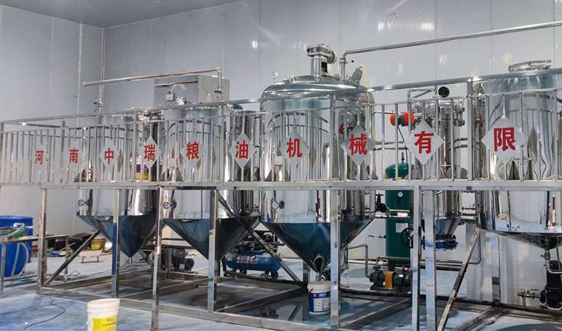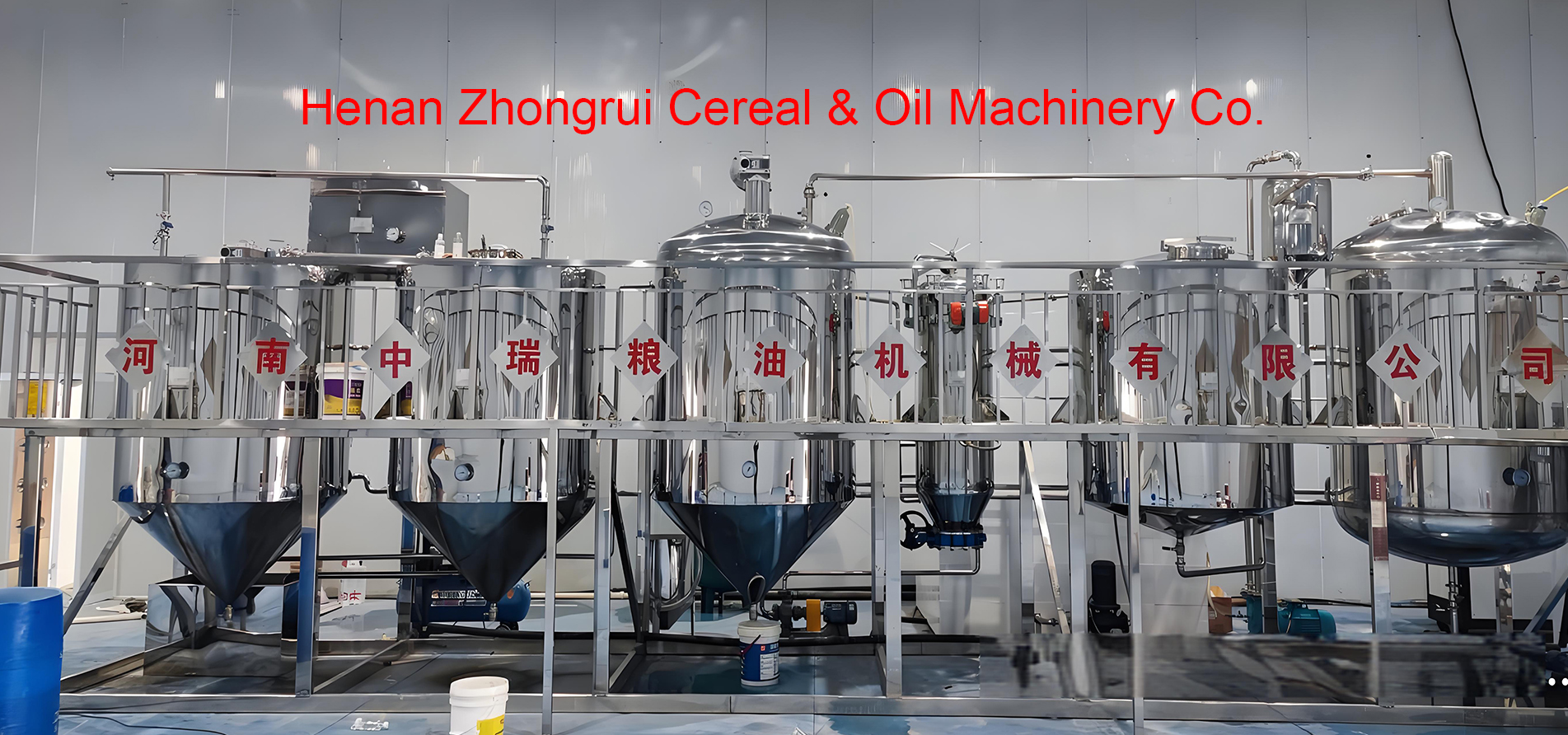- We are a manufacturer of oil press equipment and grain and oil processing equipment.
- Email:2334065214@qq.com
The oil yield of soybean oil press is the core index to measure the performance and economic efficiency of the equipment, which directly affects the operating cost and market competitiveness of the oil mill. According to industry data and equipment testing, soybean oil presses per 100 pounds of soybean oil yield is usually between 12-18 pounds, but the actual value of the quality of raw materials, pressing process, equipment type and operating practices and other factors. In this paper, from the technical principle, raw material differences, process selection and equipment optimization dimensions, systematic analysis of soybean oil press fluctuations in oil yield mechanism.

First, the quality of raw materials: soybean oil content and the key role of pretreatment
The oil content of soybeans is the basis for determining the oil yield. Domestic soybean oil content is generally 16% -18%, while the oil content of imported soybeans (such as U.S. genetically modified soybeans) can be up to 18% -20%. This difference stems from the selection of varieties and planting environment: imported soybean due to large-scale planting and genetic improvement, seed fullness is higher, oil accumulation is more adequate. For example, an oil mill using domestic soybeans, every hundred pounds of oil output stabilized at 15-16 pounds; switch to imported soybeans, the oil yield increased to 17-18 pounds, directly reflecting the decisive impact of raw material quality on oil yield.
Pretreatment process is another key link to improve the oil yield. The hot pressing process requires soybean screening, crushing, steaming and stir-frying steps, of which the stir-frying temperature needs to be controlled at 110-120 ℃, in order to destroy the cell structure and reduce the viscosity of oil. If the steaming and frying is insufficient, the cell wall is not fully ruptured, the oil yield may be reduced by 2-3%; if excessive steaming and frying, it will lead to oxidation of the oil, affecting the quality of the oil. Although the cold pressing process can retain more nutrients, but because it does not destroy the cell structure, the oil yield is usually 1-2 percentage points lower than hot pressing.
Second, the pressing process: the trade-off between hot pressing and cold pressing
The hot pressing process improves the oil yield through high temperature treatment, and its core lies in the temperature and time control of the steaming and frying process. A brand of screw oil press, for example, in 115 ℃ stir-fry conditions, soybean oil yield of up to 17% -18%, but need to pay attention to control the moisture content of 7% -8%. If the moisture is too high, the cake residue is easy to become a paste, resulting in poor oil; if the moisture is too low, it may lead to clogging of the press chamber. In addition, the hot pressed oil needs to go through a centrifugal fine filter to remove impurities and improve oil clarity.
The advantage of cold pressing is that it retains more natural nutrients, but its oil yield is limited by the integrity of the raw material’s cell structure. Test data from a home cold press shows that soybean oil yield is about 14%-15%, and the raw material needs to be dried at a low temperature to avoid moisture affecting the pressing efficiency. The acid value and peroxide value of cold pressed oil are lower, which is suitable for the high-end edible oil market, but the investment in equipment and production cost is 20%-30% higher than that of hot pressing.
Equipment Type: Comparison of Screw Oil Press and Hydraulic Oil Press Performance
With its high efficiency and energy-saving characteristics, screw oil press has become the mainstream choice for small and medium-sized oil mills. Its working principle is through the progressive pressurization of the screw shaft, so that soybeans in the press chamber to produce frictional heat, so as to achieve the separation of oil and grease. The measured data of a model 6YL-120 screw oil press shows that the processing capacity reaches 250-400Kg/h, the oil yield is stable at 17%-18%, and the energy consumption is 40% lower than that of traditional equipment. This model supports hot and cold double pressing, and can adapt to different oil content raw materials by adjusting the gap and rotating speed of the screw.
Hydraulic oil press is suitable for pressing high value-added oilseeds, such as walnuts, almonds and so on. It applies high pressure through hydraulic cylinders, and the oil yield can reach more than 20%, but the equipment cost is 50%-80% higher than screw press. In the soybean pressing scenario, the oil yield advantage of hydraulic press is not significant, and the operation complexity is higher, requiring regular replacement of seals and hydraulic oil.

Equipment optimization: synergistic effect of technological innovation and maintenance strategy
Modern screw oil presses significantly improve oil yield and oil quality through multi-stage pressing and infrared temperature control technology. A brand of equipment adopts three-stage pressing structure, the first rough pressing removes most of the free oil, the second fine pressing extracts the combined oil, and the third sweeping pressing recovers the residual oil and grease, which increases the oil yield by 2-3 percentage points compared with the traditional equipment. The infrared temperature control system can monitor the temperature of the press chamber in real time to avoid the degradation of oil and grease caused by local overheating.
Maintenance of the equipment is the key to ensure stable oil yield. It is recommended to check the lubrication condition every 50 hours, replace the screw and ring every 200 hours, and clean the whole machine every 500 hours. An oil mill failed to replace the worn screws in time, resulting in a 5% drop in oil yield and excessive oil content in the cake residue. In addition, regular calibration of pressure sensors and temperature controllers can avoid fluctuations in oil yield caused by parameter deviations.
V. Industry practice: quantitative analysis of oil yield and economic benefits
Take a medium-sized oil mill as an example, it uses 6YL-120 screw oil press to process domestic soybeans, with a daily processing capacity of 1.5 tons and a stable oil yield of 17%. According to the soybean purchase price of 4.5 yuan / catty, soybean oil selling price of 10 yuan / catty calculation, daily gross profit of up to 12,000 yuan. If we switch to imported soybeans and increase the oil yield to 18%, the daily profit can increase by 1500 RMB. However, the cost of imported soybeans is higher than the domestic 0.3 yuan / kg, the need for a comprehensive weighing of raw material costs and oil yield gains.
The impact of equipment selection on economic efficiency is equally significant. An oil mill to compare the screw press and hydraulic oil press found that the former slightly lower oil yield, but energy consumption is reduced by 30%, labor costs reduced by 50%, the overall cost of 25% lower than the latter. In addition, the screw oil press has a lower failure rate, maintenance costs than hydraulic equipment to reduce 40%.
Sixth, the future trend: intelligent and green technology integration
With the development of Internet of Things and artificial intelligence technology, soybean oil presses are evolving in the direction of intelligence. A brand of equipment has achieved remote monitoring and fault early warning, through the sensor real-time collection of pressure, temperature, speed and other parameters, and automatically adjust the operating state to optimize the oil yield. In addition, the combination of cold pressing process and supercritical CO₂ extraction technology is expected to increase the oil yield to more than 20% while retaining the nutrients.
Greening is another important trend. The new oil press adopts biodegradable lubricating oil and low-noise design, reducing energy consumption by 60% compared with traditional equipment. The solar oil extraction system developed by an enterprise can meet 50% of the energy consumption of the equipment through the power supply of photovoltaic panels, which significantly reduces the operating costs.
The oil yield of soybean oil press is the result of raw material quality, pressing process, equipment type and operation specification. According to the market demand and cost structure, oil mill operators need to choose the appropriate raw materials and processes, and through the optimization and maintenance of equipment to ensure the stability of the oil yield. In the future, intelligent and green technology will further improve the efficiency and economic benefits of oil extraction, and promote the industry to develop in the direction of high efficiency and sustainability.
gao
Henan Zhongrui Grain is a high-tech enterprise specializing in the research, development, manufacture and sales of oil press equipment, and has been deeply engaged in the field of oil processing for more than ten years. The company integrates design, production and testing, and its products cover screw oil press, hydraulic oil press, automatic refining production line, etc., which are suitable for rapeseed, peanut, soybean, sesame and other oilseeds, and help customers to realize efficient, energy-saving and environmentally friendly oil and grease production.
Contact Us
Product Center
menu
Recommended
© 2025. All Rights Reserved. 豫ICP备19039166号 Theme By XinTheme












